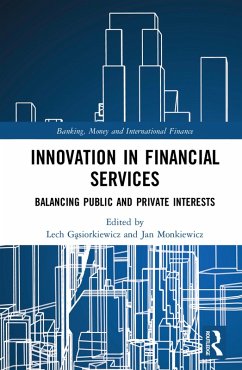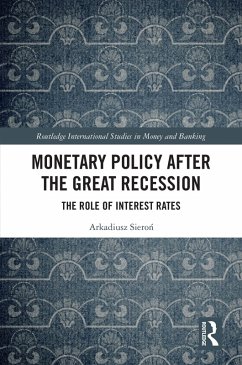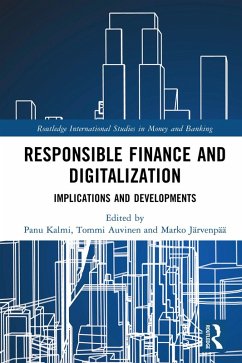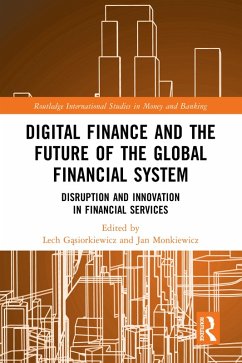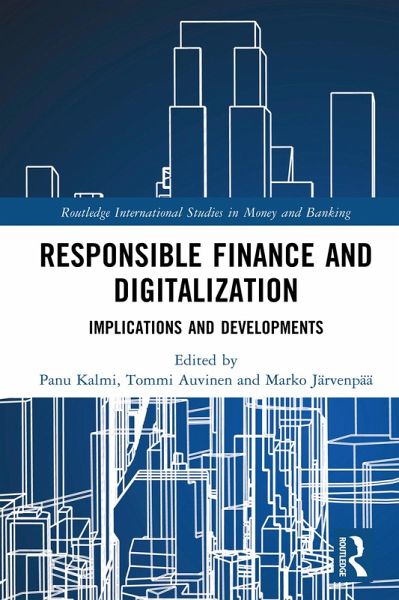
Responsible Finance and Digitalization (eBook, PDF)
Implications and Developments
Redaktion: Kalmi, Panu; Järvenpää, Marko; Auvinen, Tommi
Versandkostenfrei!
Sofort per Download lieferbar
39,95 €
inkl. MwSt.
Weitere Ausgaben:

PAYBACK Punkte
20 °P sammeln!
The aftermath of the 2008 crisis has substantially increased the regulation of banks and insurance companies and curtailed their risk taking, which has shifted much of the risk to their clients: firms and consumers. At the same time, digitalization has encouraged the entry of new firms combining finance and technological innovation, a phenomenon known as FinTech. The emergence of non-bank financial entities has contributed to the fragmentation of financial services, and also opened up new markets. Furthermore, the growing emphasis on corporate social responsibility has made it increasingly imp...
The aftermath of the 2008 crisis has substantially increased the regulation of banks and insurance companies and curtailed their risk taking, which has shifted much of the risk to their clients: firms and consumers. At the same time, digitalization has encouraged the entry of new firms combining finance and technological innovation, a phenomenon known as FinTech. The emergence of non-bank financial entities has contributed to the fragmentation of financial services, and also opened up new markets. Furthermore, the growing emphasis on corporate social responsibility has made it increasingly important for financial organizations to care about their public image.
Drawing together these diverse strands, this book examines how the financial sector is evolving and how the existing actors are adapting to the institutional change and to the challenges from new actors and competitors. It also addresses the issue of how financial organizations are providing fixes to the challenges at the systemic level and how a healthier, more diverse and socially responsible financial sector is beneficial to the operations of the market economy as a whole. While there are books that address each of these issues, and also books that look at organizational diversity, there are few that investigate their interconnectedness.
Responsible Finance and Digitalization offers a topical overview of the changes that are taking place in the financial sector and how the financial sector itself can contribute to solving global challenges. It equips both students (at MBA and other levels) and practitioners with analytical tools to reflect on this change and to take appropriate action to ensure that their organization can successfully navigate it and create value.
Drawing together these diverse strands, this book examines how the financial sector is evolving and how the existing actors are adapting to the institutional change and to the challenges from new actors and competitors. It also addresses the issue of how financial organizations are providing fixes to the challenges at the systemic level and how a healthier, more diverse and socially responsible financial sector is beneficial to the operations of the market economy as a whole. While there are books that address each of these issues, and also books that look at organizational diversity, there are few that investigate their interconnectedness.
Responsible Finance and Digitalization offers a topical overview of the changes that are taking place in the financial sector and how the financial sector itself can contribute to solving global challenges. It equips both students (at MBA and other levels) and practitioners with analytical tools to reflect on this change and to take appropriate action to ensure that their organization can successfully navigate it and create value.
Dieser Download kann aus rechtlichen Gründen nur mit Rechnungsadresse in A, B, BG, CY, CZ, D, DK, EW, E, FIN, F, GR, HR, H, IRL, I, LT, L, LR, M, NL, PL, P, R, S, SLO, SK ausgeliefert werden.





